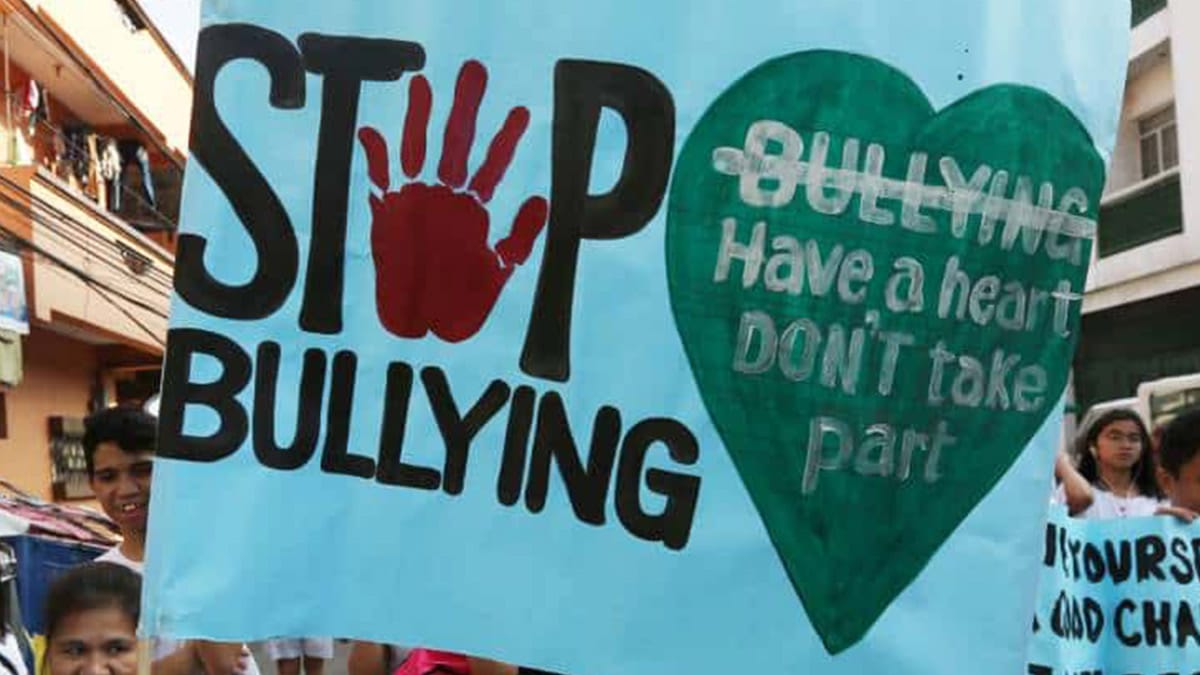MANILA, Philippines — Cherry (not her real name) walked into five different hospitals in a single day to find a psychiatrist who could check on her 7-year-old daughter, a third-grade student in a public school in Malabon City, who was bullied in school.
The 29-year-old housewife said she first learned of the “trauma” her daughter experienced in the second grade when she insisted on skipping a short summer learning camp due to fear of seeing her classmates.
“In the middle of the last school year, she would complain to me that her classmate would get her ‘baon.’ I dismissed it at first and told her it’s okay to share your food,” Cherry told the Inquirer in a phone interview. She asked that her child be not named in the story.
“But I learned that it was really bothering her when she didn’t want to attend the National Learning Camp (NLC). She only went to two out of the nine camp days, and she would also cry when it was time to go to school,” she recalled. NLC is one of the learning recovery programs of the Department of Education (DepEd).
Her daughter also found it hard to sleep at night and complained about chest pains. Worried about the health of her child, Cherry took her to free counseling sessions provided by the city governments of Malabon and Caloocan City but was advised to take the child to doctors with specialized training.
No slots
To her dismay, pediatric psychiatrists in all the public and private hospitals she went to either had no immediate slots or had to be booked one month ahead.
Her daughter has yet to be taken to a psychiatrist as of writing.
Cherry raised the issue with teachers as the new school year started. They were responsive and reprimanded the student who not only was taking away food from Mosquido’s daughter but, on one occasion, also sprayed alcohol on her face.
Because her daughter, now a Grade 3 student, had the same afternoon schedule as the bully, Cherry also asked the school to switch her to the morning classes.
“I really pressed the school, going back and forth, and even brought medical checkup requests as proof that my daughter was having a hard time. If they reject this, I will raise the issue [with] the guidance counselor and the principal,” Cherry said. The teacher eventually agreed to Cherry’s request.
Edcom 2 findings
The case of Cherry’s daughter reflects the lack of antibullying policies in some 10,000 public schools as well as the lack of licensed psychologists and guidance counselors, as reported by the Second Congressional Commission on Education (Edcom 2).
In its latest findings released this week, Edcom 2 said there are 10,018 DepEd-run schools with “no localized antibullying policies” despite being required by Republic Act No. 10627 or the Anti-Bullying Act of 2013.
RA 10627 mandates elementary and high schools to craft “clear” rules and strategies against bullying, including establishing reporting mechanisms and providing counseling services to the victims, perpetrators, and even concerned family members.
The school should also maintain a record of the cases and disseminate copies of the antibullying policies, which shall be implemented by the principal, to further raise awareness on the proper procedures to be taken.
Should schools fail to adhere to these requirements, Section 6 of the law stipulates that the DepEd secretary shall mete out “appropriate administrative sanctions” on the erring school administrators.
Impact of bullying
Edcom 2 executive director Karol Yee noted the impact of bullying on a student’s performance in major subjects as shown in an international assessment.
“Students who were never bullied scored 351 in math, while those who reported being bullied weekly scored 269. In science, those who were not bullied scored 318, while those who reported being bullied weekly scored 214,” Yee said, citing the Trends in International Mathematics and Science Study by the US Department of Education.
“Aside from depriving our students of a safe school environment, there really are tangible effects of bullying among our students,” he added.
Data from the Programme for International Student Assessment (Pisa) indicated a high incidence of bullying in the Philippines, with a third of Filipino students in 2022 reporting being subjected to bullying at least once a week.
DepEd’s own monitoring showed that a total of 7,742 bullying cases, including physical, social, online, and gender-based forms, were logged for the school year 2022-2023.
The shortage of guidance counselors, as raised by Edcom 2 in its earlier findings this year, is another factor that prevents public schools from fully complying with the mandated antibullying rules.
Based on Edcom 2’s estimates, Yee said that would take up to 14 years to fill the 4,460 current vacancies for guidance counselors nationwide, as there are not enough graduates for this position, which requires at least a master’s degree.
The Mental Health and Well-Being Act, which seeks to address the gap, is now up for signing by President Marcos, said Edcom 2.


